Russia is attacking Ukraine not only with weapons but also by waging war on the information front. How can local media distinguish between propaganda, fakes, and manipulation? What journalistic materials meet quality standards? How can local media protect their audience from hostile propaganda? All these questions need professional clarification.
Therefore, Pylyp Orlyk Democracy Institute, in partnership with the Dnipro Journalists’ Solidarity Center of the National Union of Journalists of Ukraine (NUJU), decided to conduct a thematic training Quality Media vs. Propaganda: Our Front in Wartime Media Space.
The event, held in the city of Kamiyanske, Dnipropetrovsk Region, gathered local media journalists, representatives of press services, communicators, public activists, and volunteers – a total of 30 people. Valerii Dreshpak, a coach/doctor of public administration/professor and an expert at the Pylyp Orlyk Democracy Institute, helped to deal with problematic issues. The expert is convinced that renewing knowledge and skills, as well as acquiring new media literacy skills, will help overcome the problem.
“We held today’s training in Kamiyanske. Why not the regional center? It is important for us at the local level that representatives of the media, public organizations, and students understand the information front and what we can do on it as information fighters. We analyzed how to make a quality product in this communicative space. This is important for resistance. For this, the audience should understand what propaganda is and how it affects ordinary citizens and media representatives,” said Valerii Dreshpak.
First of all, he continued, society needs to critically perceive information, consciously treat the sources of this information, independently interpret what is heard or read and relay it adequately to learn media literacy.
“Today, media happen to disseminate low-quality journalistic materials. There are several reasons for that. First, non-compliance with journalistic standards. Second, interference in the work of journalists. This phenomenon is better known to us as censorship. Third, ordered articles, namely bribery of colleagues, hidden advertising, and distribution of unofficially paid materials,” Valerii Dreshpak emphasized.
Self-censorship, which arises as a result of physical or moral pressure, as well as a misunderstanding of the journalist’s mission, also stands in the way of creating quality media products. In this case, the journalist “confuses” his work with propaganda.
The training program was developed on the basis of many years of experience and monitoring. The participants discussed, performed practical exercises, modeled problematic situations in the communicative space of the city, recalled the standards of quality journalism, conducted self-analysis of their work, identified propaganda materials, and learned to avoid manipulative traps.
“Thank you very much for organizing the training. Media literacy is a very relevant aspect. In light of the war, journalists must understand what to pay attention to when creating materials. I cover several projects about the war on a TV channel. Heroes are servicemen and families of the dead. Therefore, the materials must contain not only spiritual and moral content but also professionalism. We should not harm the country or ordinary people with our work,” said Aliyona Rudenko, a correspondent and news director at the City Information Service TV and radio company.
“The expert gave a clear understanding of the topic. Indeed, having information is one thing, but conveying and explaining it is quite another. The training lasted only a day, but there was a lot to learn. It is nice that such events are organized even in such a difficult time. We can learn, which means we can develop in our field,” said Volodymyr Kremin, a journalist and news announcer at City Information Service.
Call the Dnipro JSC by dialing 096 208 6788 (Nataliya Nazarova, the Dnipro JSC coordinator). The Center’s address is 8 Starokozatska Street.
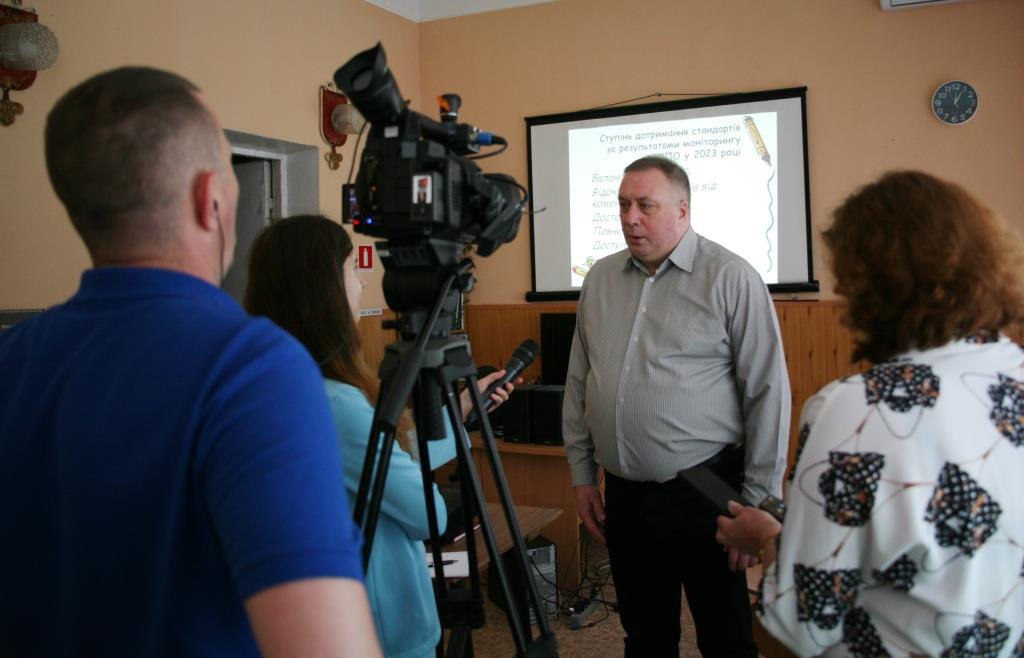
As earlier reported, the Journalists’ Solidarity Centers is an initiative of the NUJU implemented with the support of the International and European Federations of Journalists and UNESCO. The initiative is designated to help media representatives working in Ukraine during the war. The Centers operate in Kyiv, Lviv, Ivano-Frankivsk, Chernivtsi, Zaporizhzhia, and Dnipro and provide journalists with organizational, technical, legal, psychological, and other types of assistance.
UNESCO is the United Nations Educational, Scientific, and Cultural Organization. It contributes to peace and security by promoting international cooperation in education, sciences, culture, communication, and information. UNESCO promotes knowledge sharing and the free flow of ideas to accelerate mutual understanding. It is the coordinator of the UN Action Plan on the Safety of Journalists and the Issue of Impunity, which aims to create a free and safe environment for journalists and media workers, thus strengthening peace, democracy, and sustainable development worldwide. UNESCO is working closely with its partner organizations in Ukraine to provide support to journalists on the ground.
The designations employed and the presentation of material throughout this digest do not imply the expression of any opinion whatsoever on the part of UNESCO concerning the legal status of any country, territory, city, or area or its authorities or concerning the delimitation of its frontiers or boundaries.
The authors are responsible for the choice and the presentation of the facts contained in this digest and for the opinions expressed therein, which are not necessarily those of UNESCO and do not commit to the organization.
Dnipro JSC Information Service
Photo: Mark Derhobuzov

 THE NATIONAL UNION OF
JOURNALISTS OF UKRAINE
THE NATIONAL UNION OF
JOURNALISTS OF UKRAINE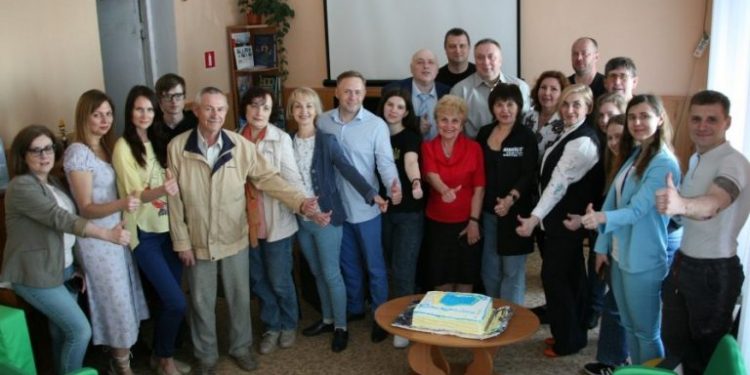
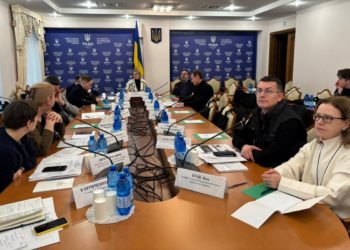
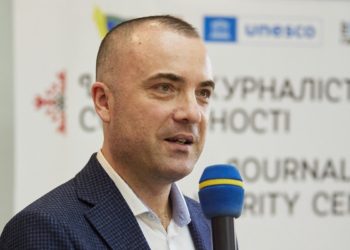
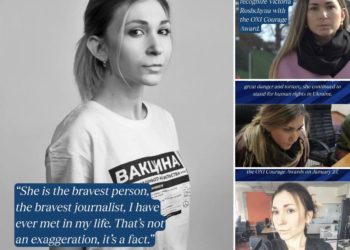













Discussion about this post